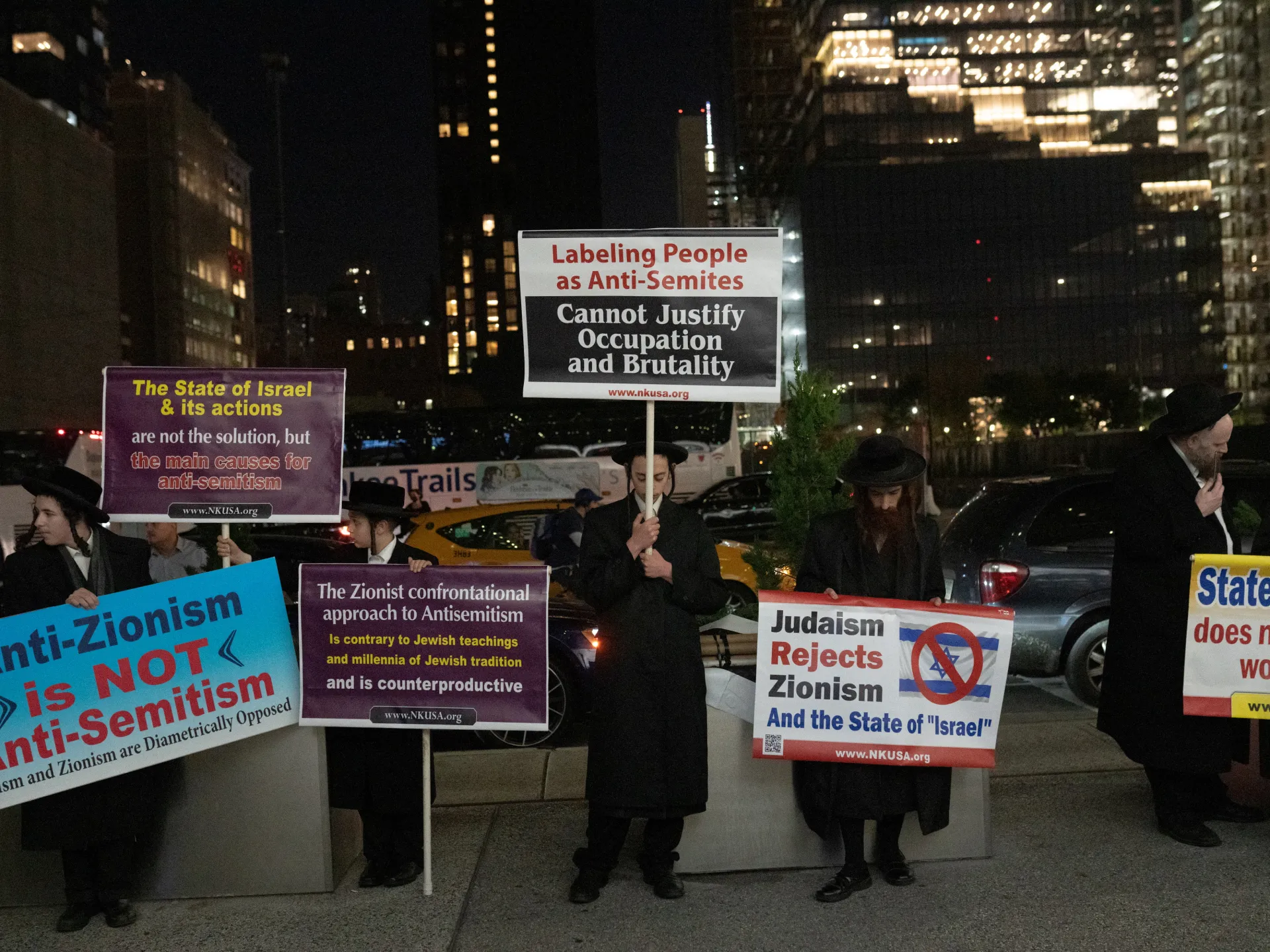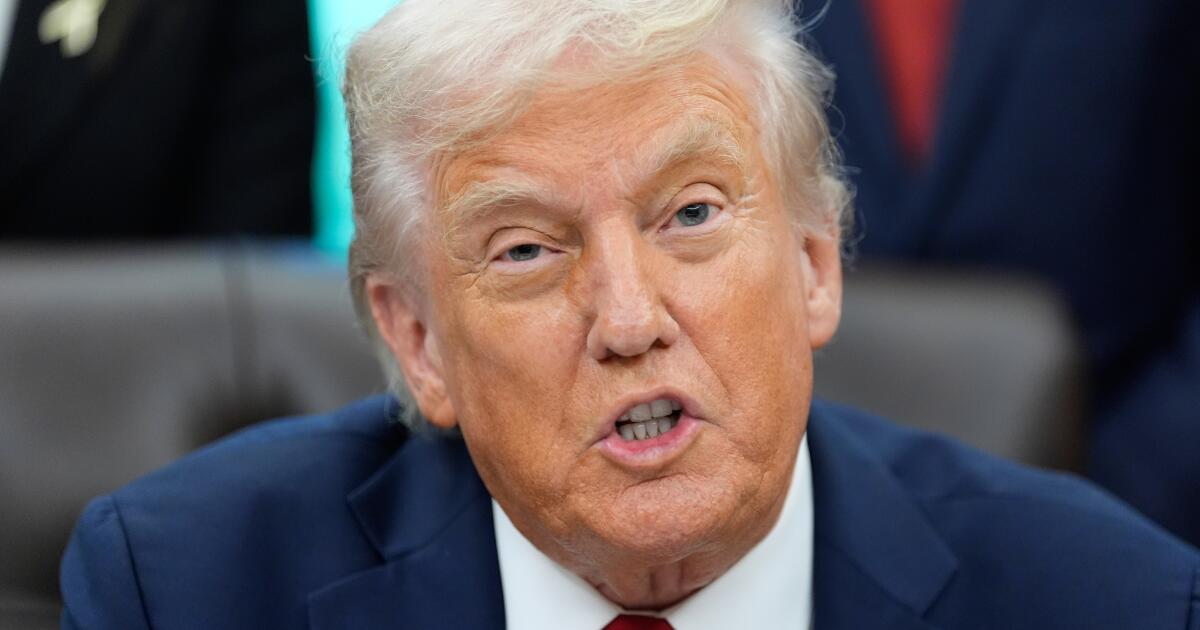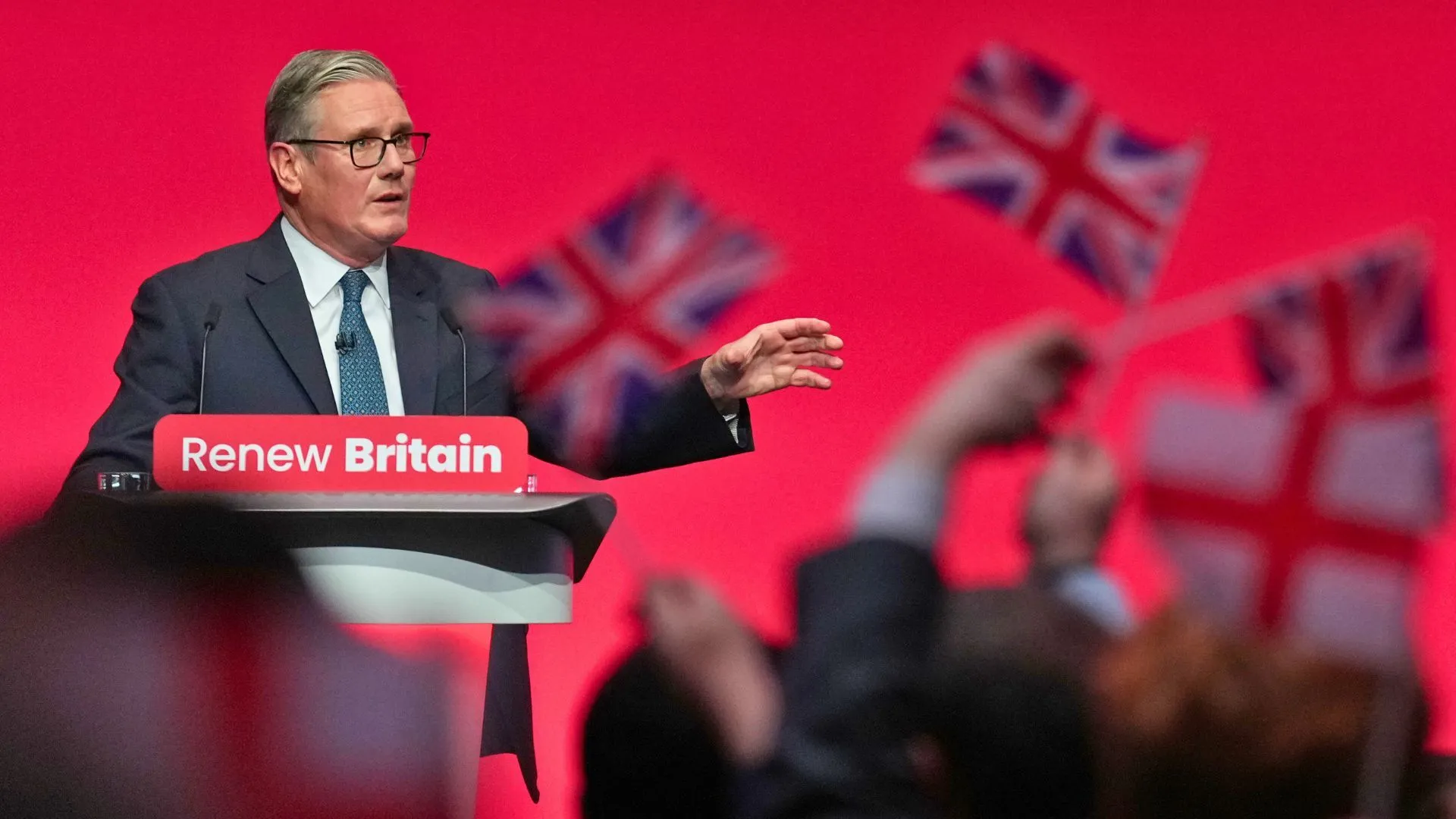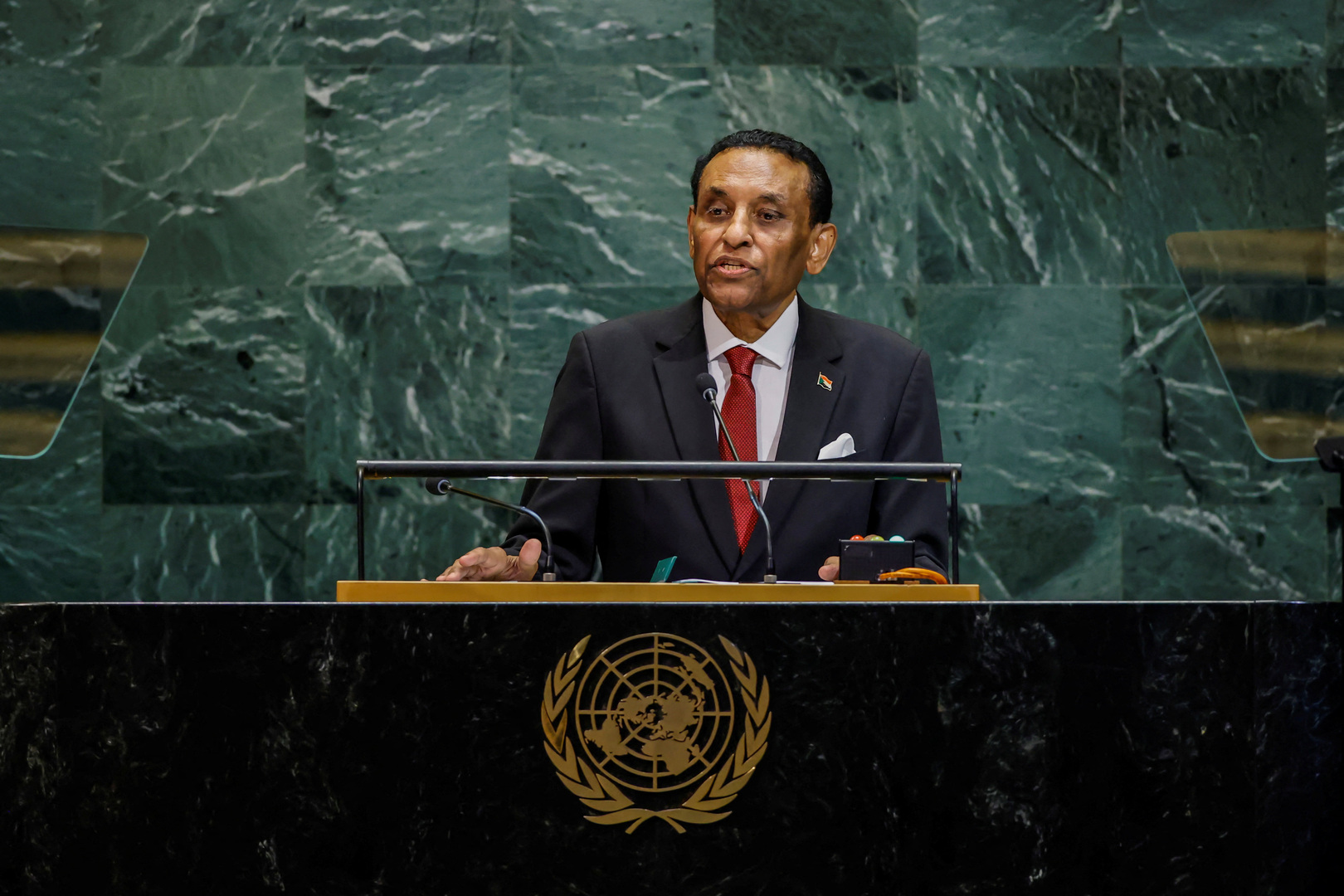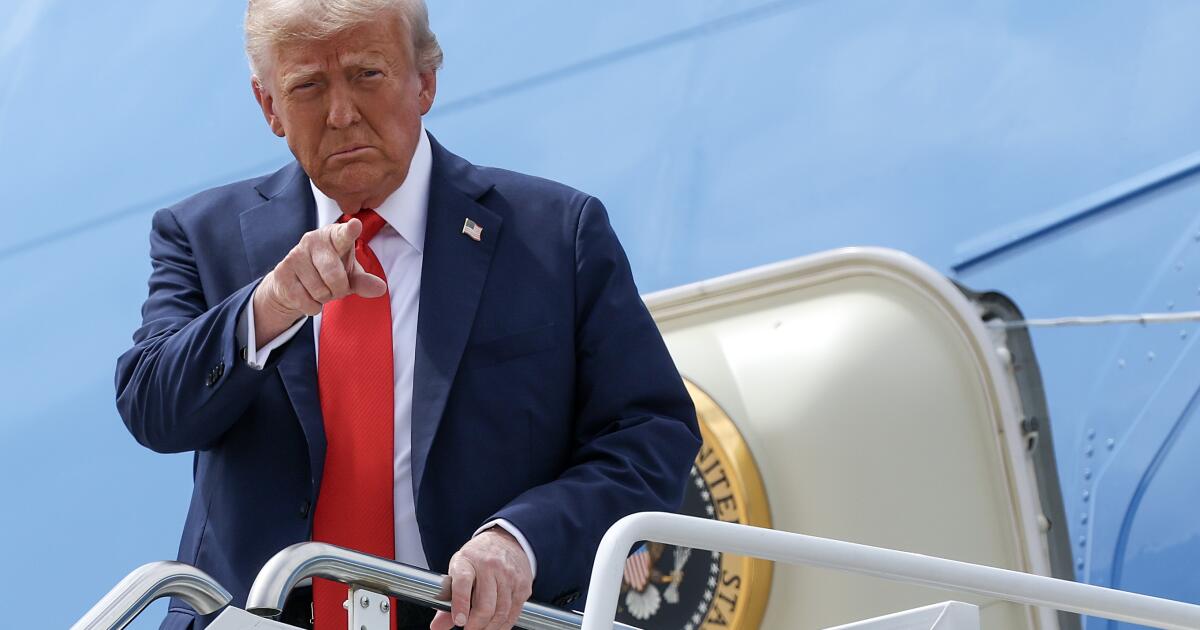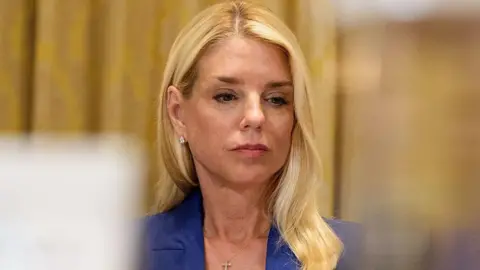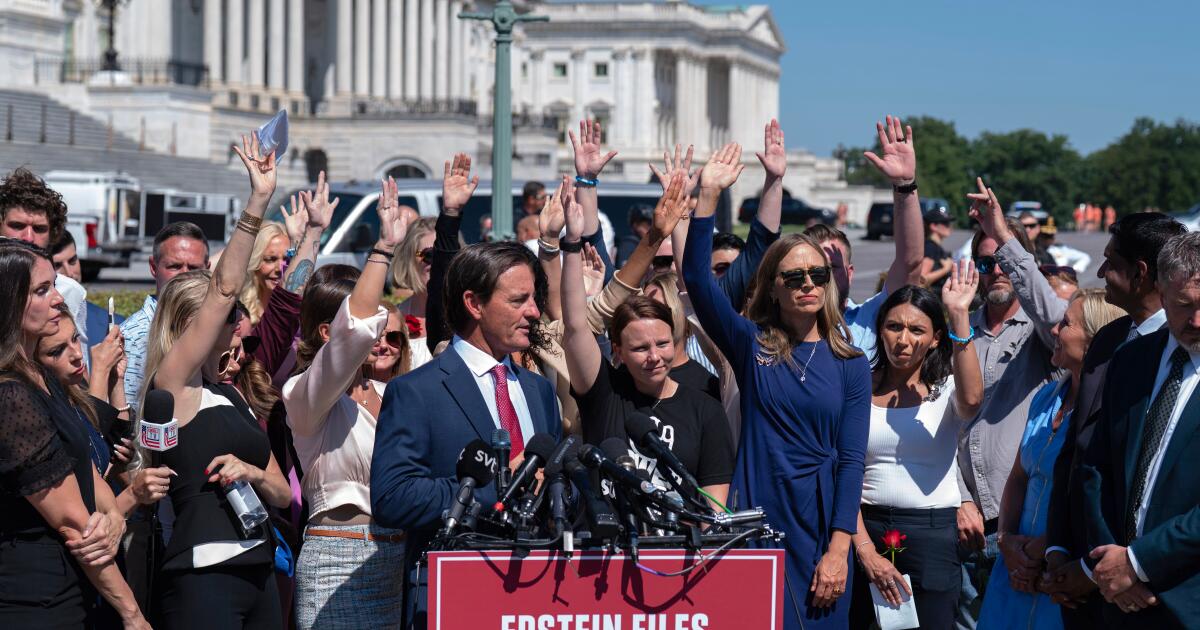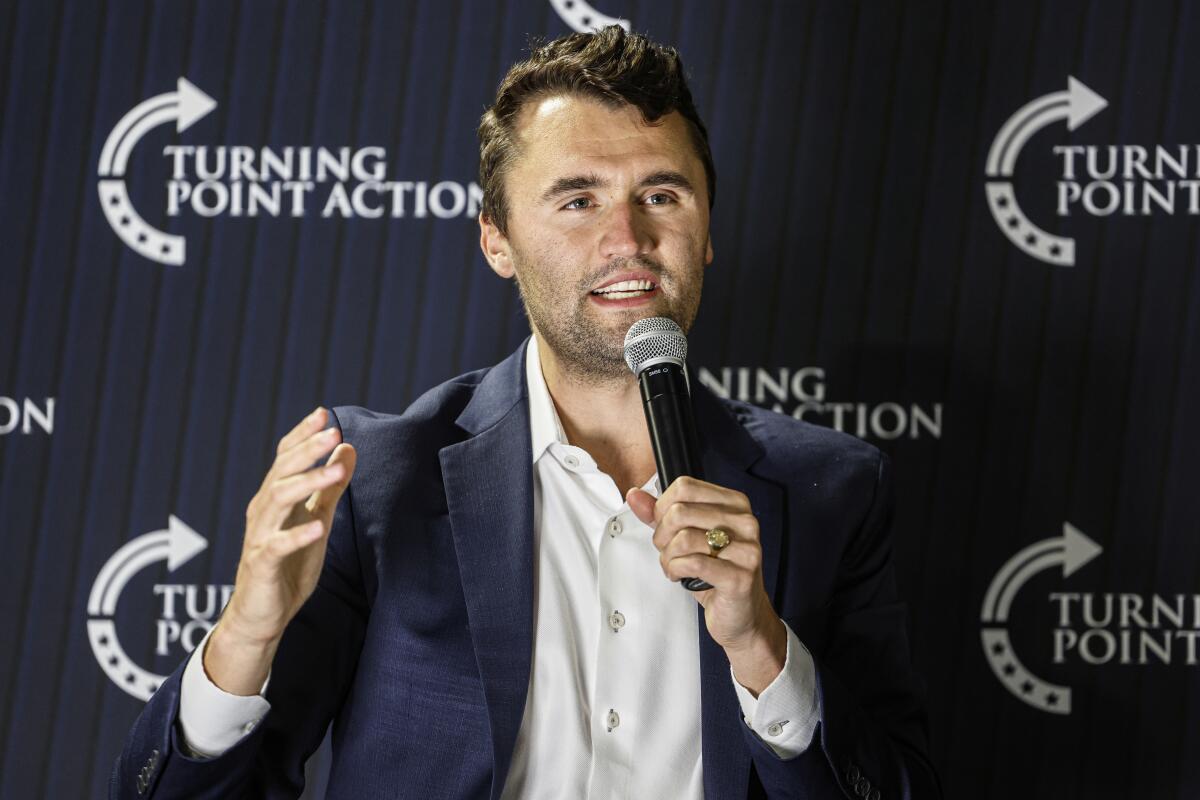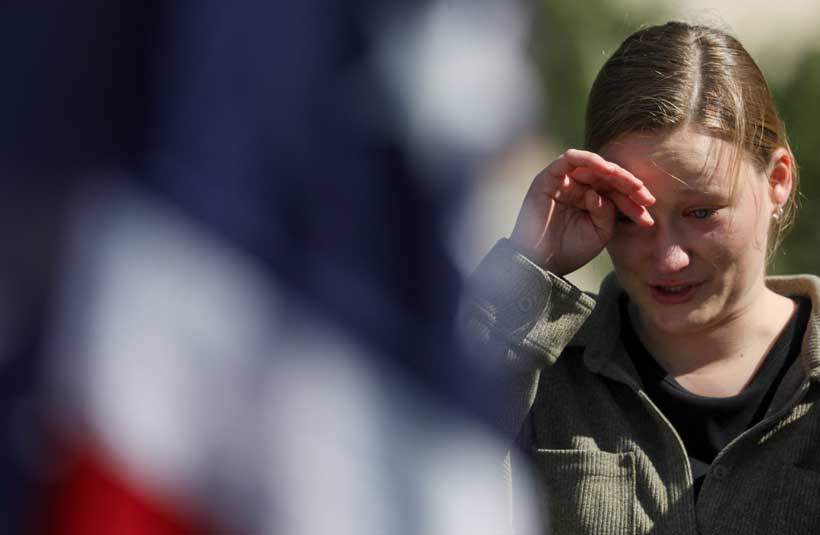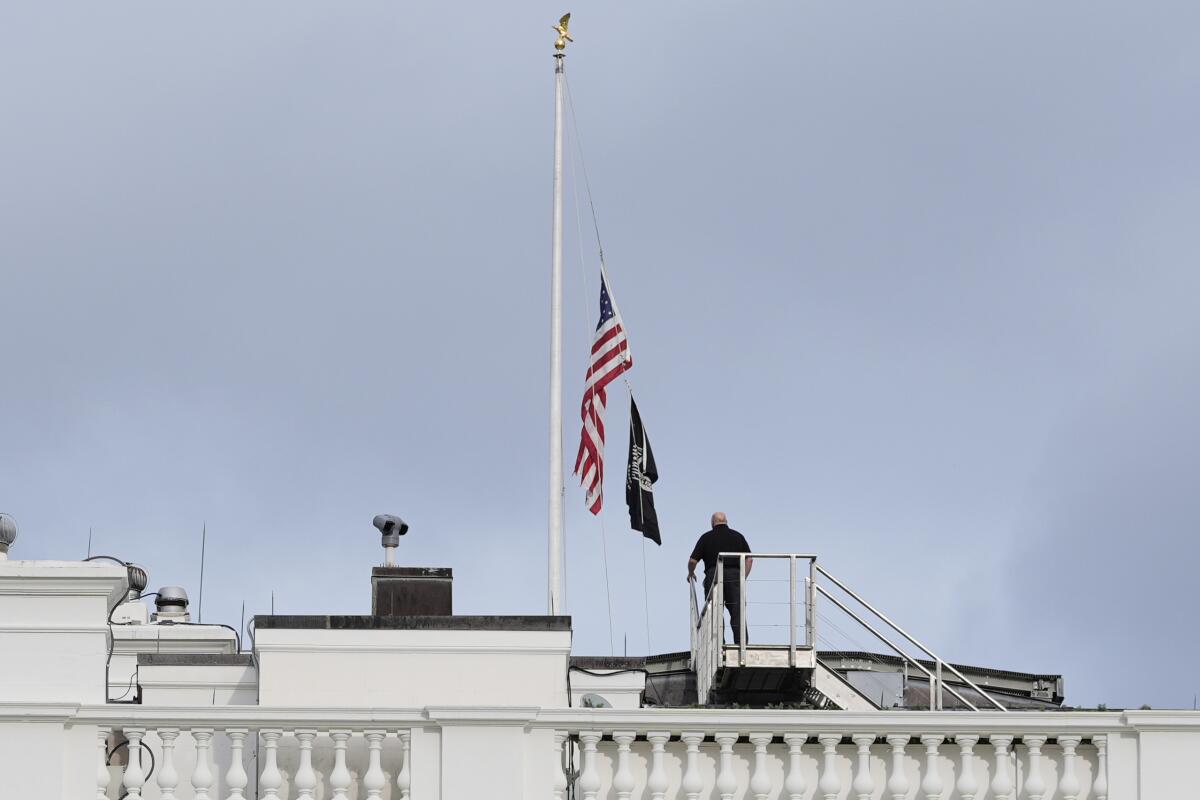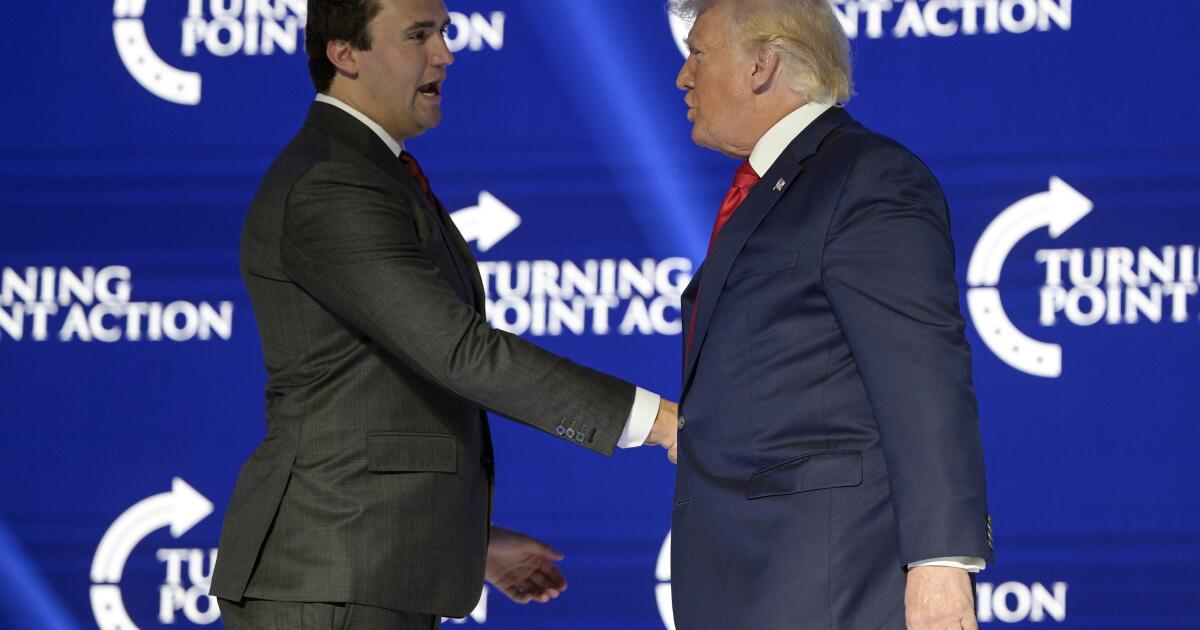Rising Star Tarnished in Raid : GOP’s Nolan in Struggle for His Political Survival
SACRAMENTO — Until the FBI raided his Capitol office last August, Assemblyman Pat Nolan of Glendale was a blazing young star of Republican politics.
Leader of the Assembly GOP, with a reputation for relentless pursuit of his goals and boundless ambition, he hoped to pick up enough seats over the next few elections to win a majority and become Speaker. He talked about running for governor one day.
None of it seemed beyond his reach.
Now, at age 38, stripped of his leadership post, Nolan is struggling for political survival.
Last June 29, Nolan and an aide were videotaped at a meeting in a hotel room where FBI agents posing as businessmen handed him two $5,000 checks for his campaign committees, sources familiar with the three-year FBI probe have told The Times.
Nolan failed to report one of those checks until after the Capitol raid, a full month after it should have been disclosed; just a mistake, according to those close to him.
The lawmaker has not been accused of a crime, but federal sources say he is a target of the investigation.
Nolan’s attorney has told him not to talk to the press beyond a brief statement, issued the day after the raid, saying that “when the investigation is completed, my office will be completely cleared.”
Friends and enemies alike describe Nolan as a driven soul, someone who has devoted himself unflaggingly to conservative politics since adolescence and who, once he attained power, could be ruthless in his exercise of it.
A review of public records as well as his daily calendar shows his preoccupation with raising money for political campaigns. During one hard-charging stretch last August, he was scheduled to attend five fund-raising events in a day as he hustled to keep pace with the money-raising of Assembly Democrats.
Spoils of High Office
The same records illustrate that with power came the spoils of high office. Special-interest groups paid him for speeches, sent him gifts and provided him with trips.
In his 10 years in the Legislature, the documents show, he has collected more than $60,000 in honorariums–about $55,000 of it in the four years that he was Republican leader.
Other legislators have collected far larger amounts for speaking, but some of the specifics about Nolan’s honorariums raise questions.
Nolan was one of several legislative leaders, for example, to receive sizable speaking fees–in his case, $5,000–from the California Retailers Assn. during the 1987-88 legislative session. Last year, the lobbying group won approval of its bill to eliminate an 18% cap on interest rates that department stores may charge customers, a limit in place since the early 1960s.
Arranged Meeting
One payment of $2,500 in 1988 came from Glaxo Inc., which was lobbying to have its anti-ulcer drug Zantac added to the list of medications covered by Medi-Cal. After a bill to add the drug to the list died in the Legislature, Nolan arranged a meeting between Glaxo representatives and top Administration health officials. The money, payment for a speech that Nolan never delivered, was deposited into his personal account by his secretary. But the payment was returned in late September, three months after it was received and one month after the FBI raid.
Other special-interest groups–the Seafood Institute and Ralphs Grocery Co.–in 1986 provided a total of $6,612 in food and beverages at Nolan’s wedding reception. And businessman Del Doye, whose firm, TSD Systems of Bakersfield, was trying to win a toxic disposal permit from the state, provided the newlyweds with a honeymoon condominium in Hawaii. (Doye has left the company and the permit still is pending.)
As leader of the Assembly GOP, Nolan met regularly with Gov. George Deukmejian and his top aides, according to his calendar, which was obtained by The Times from a Republican source.
Wife Hired
Through his contacts, Nolan learned that there was an unadvertised Administration job available that might be suitable for his wife, Gail, a marketing specialist. In February, she was appointed by the governor to the $3,323-a-month public relations post at the Department of Food and Agriculture. Part of her job was to win a spot for the Dancing Raisins on the “Today Show” on National Agriculture Day, department officials said. The raisins did not make the show and Gail Nolan left her job in June to have a baby.
While a legislator, Nolan has continued to receive a $6,000-a-year-retainer from Kinkle, Rodiger & Spriggs, a Southern California law firm he joined after law school. The firm specializes in defending individuals and insurance companies in personal injury cases. Nolan’s duties include meeting with attorneys and clients to discuss legislative procedures, according to managing partner John V. Hager.
Nolan’s friends defend him as a committed idealist, an honest man who has not profited personally from his office.
“There is not a more honest guy in the whole world, with more integrity and just good character than Pat Nolan,” said Assemblyman Dennis Brown (R-Los Alamitos), a close friend of Nolan’s for 20 years.
‘Decent, Caring Person’
“Pat is really a very decent, caring person, who has very strong political beliefs and has spent 10 years trying to advance them,” said his former chief of staff, Bill Saracino, who like Brown has known Nolan since their student days at USC. “He’s not one of those legislators who have enriched themselves.”
Saracino, now a deputy director at the state Department of Commerce, also defended Nolan’s acceptance of speaking fees from various interest groups: “No. 1, it’s legal. And look who Pat’s getting honorariums from–people who agree with him on the natural anyway.”
One of his chief Republican opponents, Assemblyman Stan Statham of Oak Run, in a bitter speech before the Assembly, accused Nolan of being a liar–harsh language for one legislator to use against another on a house floor, and especially so in this case because the attack came during normally festive opening-day ceremonies with Nolan’s family in attendance.
Personal Dealings Told
“I can’t be charitable because I’ve had too many personal dealings with him (Nolan),” Statham said in an interview. Nolan broke a promise not to become involved in 1986 Republican primaries and opposed a candidate supported by Statham, the lawmaker said.
“Nothing in politics is any more important than a person’s word,” Statham said.
He also pointed out that Nolan is a central figure in an investigation of forged letters sent out on White House stationery under a phony signature of then-President Ronald Reagan in support of Republican Assembly candidates in 1986.
Although Sacramento County Dist. Atty. John Dougherty decided not to press criminal charges in the case last fall, he asserted that both Nolan and Assemblyman John R. Lewis (R-Orange) “asked staff members to give false explanations to White House staff” on how the forgery took place.
State Atty. Gen. John K. Van de Kamp, who conducted the initial investigation and referred it to Dougherty, is now deciding whether to drop the matter or move ahead on his own.
Several Maladies
Nolan is a large man, hefty but not obese, someone whose size can be intimidating in a head-to-head confrontation.
Recently his usually florid skin has had an orange cast from medication he takes for a chronic yeast infection, one of several maladies that he has complained of over the years, according to those close to him.
“He’s a bit of a hypochondriac,” observed Republican Assemblyman Gil Ferguson of Newport Beach, who acknowledges that Nolan does have some real health problems.
Ferguson, a Nolan ally, was one of several people interviewed who commented on Nolan’s hot temperament–something Ferguson attributed to hypoglycemia, or low blood sugar. “He’d explode because of a lack of sugar content,” Ferguson said.
‘Jekyll and Hyde’
Others describe him as having a “Jekyll and Hyde” personality–a charming teller of jokes and stories one minute, an ogre growling out his displeasure the next.
As a young man, his storytelling got him booted from a group of conservative students attending free enterprise seminars sponsored by Coast Federal Savings, when a woman in the group complained that he was telling dirty jokes.
“People thought conservatives were humorless, stuffy and boring,” said another member of the group, Bilenda Harris. “Pat is a wonderful teller of jokes.”
He also sprinkles his conversations with quotations–from Shakespeare and Marcus Aurelius, Sophocles and Machiavelli–a practice that dates back to his days at Notre Dame High School in Sherman Oaks.
“He’s like the renaissance man, a very well-read, very rounded individual,” Harris said.
But Harris, who also was a classmate of Nolan’s at USC and later an aide in his Glendale office, knows what it’s like to fall into Nolan’s disfavor. In 1983, Nolan fired her only six weeks after she moved with her son to Sacramento to take a new job in the lawmaker’s Capitol office.
Nolan is the boy’s godfather.
Others say that in 1987 Nolan fired another USC classmate, then-chief of staff Saracino, who had been the best man at his wedding.
“Pat just cut his head off,” Assemblyman Ferguson said.
Saracino denied that he was fired, saying that he and Nolan had agreed to go their separate ways because of “differences of style.”
But he agreed that Nolan was a tough boss. “ ‘Jekyll and Hyde’ is a bit of hyperbole,” Saracino said. “But he is a very demanding person, as you have to be if you want to get anything done.”
“Pat gets torn in this stuff,” Harris said. “The need to get elected overrides the friendship that used to be there.”
Focus on Goals
Ruthless is an adjective that Ferguson ascribes to Nolan.
“Few people have the ability or the willingness to focus on their objectives at the cost of almost everything else–friends, family life,” Ferguson said.
The sixth of nine children, Nolan showed a precocious interest in politics. He got his first taste in 1960 when he hung brochures on doorknobs for Richard M. Nixon’s unsuccessful first campaign for President.
In 1964, he walked precincts for Barry Goldwater.
Two years later, at the age of 16, he threw himself into Ronald Reagan’s first campaign for governor.
Nolan’s large family was solidly middle class. His father was an accountant, his mother a homemaker with wide interests, a constant reader. Nolan’s official biographies point out that he is a fifth-generation Californian, a direct descendant of the ranching family that founded the town of Agoura.
Nine Dancing Nolans
As children, he and his brothers and sisters celebrated their Irish roots as the Nine Dancing Nolans, a group that performed at festivals and at Disneyland.
The clan, dressed in kilts, has continued to dance together for Nolan’s political events–a St. Patrick’s Day celebration in Glendale and a campaign fund-raiser in Sacramento.
Nolan’s passion for politics came to dominate his life.
While a student at USC, he helped found the campus chapter of Young Americans for Freedom, a right-wing youth group that spawned a generation of conservative politicians. Among the members of the USC chapter were Assemblymen Dennis Brown and John Lewis, who remain two of Nolan’s closest friends and political confidants.
With the campus bitterly divided over the Vietnam War, the group staged a mock treason trial of Jane Fonda and hanged her in effigy. (A few years ago, however, Nolan found himself working hand in hand with Fonda’s husband, Democratic Assemblyman Tom Hayden of Santa Monica, on a bill to study the effects of the chemical defoliant Agent Orange on Vietnam veterans. The measure was vetoed by Deukmejian.)
Variety of Jobs
To make ends meet while at USC, Nolan worked at a variety of part-time jobs, waiting tables at the faculty center, serving in dormitory food lines and passing out towels in the gym. Later, he found a job with Los Angeles City Councilman John Ferraro.
He managed to find the time to learn to ride horseback, became a riding instructor and rode as Tommy Trojan in the 1974 Rose Parade.
An average student in college, Nolan scored well enough on qualifying tests to enter USC Law School. Graduating in 1975, he passed the Bar exam on his second try and started practicing law.
In 1978, he upset more seasoned politicians in his first bid for an Assembly seat by conducting an old-fashioned, door-to-door campaign that stressed his support for Proposition 13, California’s trend-setting property tax-cutting initiative.
At first, he was an outsider in his own caucus–so conservative that he and his closest allies were dubbed “the cavemen.”
Succeeded on Second Try
But by 1983, he came within one vote of being elected Republican leader. He succeeded on his second try a year later with the backing of two new GOP assemblymen he had recruited to run for office–Ferguson and Wayne Grisham of Norwalk.
Nolan’s goal was to win enough seats for Republicans to gain a 41-vote majority in the Assembly in time for the GOP to play a central role in drawing up new legislative and congressional districts after the 1990 Census.
To get the legislative staff he wanted, the new Republican leader worked out a compromise with Democratic Assembly Speaker Willie Brown–”the devil incarnate” to many of the Republicans, according to Ferguson.
In return for staff appointments and the ability to decide which Republicans would serve on which committees, Nolan agreed not to challenge Brown’s position as Speaker as long as the Democrats held a majority.
Solid Voting Bloc
With control over his own members, Nolan was able to whip a divided Republican Assembly membership into a solid voting bloc. The GOP members could stop any measure requiring a two-thirds vote, including the annual state budget and attempts to override a Deukmejian veto.
To plot Republican strategy, Nolan drew on a tight group of colleagues, which called itself “the board” and met secretly every Monday night at the offices of Heron, Burchette, Ruckert & Rockert, a lobbying firm, according to Ferguson, a charter member. Other lawmakers in the group included Nolan’s USC friends, Dennis Brown and John Lewis, along with Frank Hill of Whittier, Ross Johnson of La Habra, William P. Baker of Danville, Bev Hansen of Santa Rosa, William P. Duplissea of San Marcos and a few others.
In 1986, despite a divisive Republican primary in which several Nolan-backed candidates were defeated, the GOP picked up three Assembly seats.
Within Reach
With 36 Republican members, five short of a majority, Nolan’s goal suddenly seemed within reach, if not in 1988, then perhaps by 1990–in time to redistrict the state.
In preparing for the 1988 elections, Nolan stepped up his fund-raising in a continuing effort to compete with Speaker Brown.
“You’re there to make a difference,” Saracino explained. “The way to do that is to compete with the Democrats on an equal footing. The way to do that is to raise political contributions. Legally.”
Another former Nolan employee believed that his boss had become too eager to collect money. “Willie Brown would never have walked across the street to pick up a check at the Hyatt Hotel,” where Nolan met with FBI agents posing as businessmen, the ex-staffer said. “Pat apparently did.”
By 1988, Nolan’s life had changed. He was married and his wife was expecting a baby. On June 28, the night he was originally scheduled to meet with “businessmen” who later proved to be FBI agents, he also planned to attend a natural childbirth class with his wife, his calendar shows. (He postponed his meeting with representatives of the bogus company to June 29, when he and an aide picked up the checks that have caused Nolan so much trouble.)
Nolan’s daughter was born a month later.
On the surface at least, Nolan had everything he wanted, according to Bilenda Harris. A family. A promising career.
But on Aug. 24, 30 FBI agents armed with search warrants raided the Capitol offices of Nolan, aide Karin Watson, and Assemblyman Hill. The FBI searched offices of Democrats as well–Assemblywoman Gwen Moore of Los Angeles, her aide Tyrone Netters, and Sen. Joseph B. Montoya of Whittier. Former Democratic Sen. Paul Carpenter, now a member of the State Board of Equalization, was questioned by the FBI.
While the federal investigation bruised the Democrats, it struck at the heart of the Assembly Republican leadership.
Many are convinced that the sting hurt Republicans at the polls last November.
“The Pat Nolan name was for the first time as negative as Willie Brown,” said one GOP lawmaker, who asked not to be identified. The contributions raised by Nolan for other Republicans suddenly became “tainted money, dirty money,” a liability for members in close races, the assemblyman said. “The Democrats beat them to death.”
Instead of picking up additional seats in the November election, the Assembly Republicans lost three. The losses finished whatever hopes Nolan might have had of remaining GOP leader.
Now his prospects for the future are uncertain.
Even if he is exonerated, his connection to the FBI sting could hamper his hope of ever running for an office outside his own heavily Republican district, according to two Republican assemblymen, who asked not to be identified.
His friends, however, believe that he will in the end be vindicated and that his career can recover.
“This is an ethical cloud, even if nothing comes of it,” said his former top aide, Saracino.

